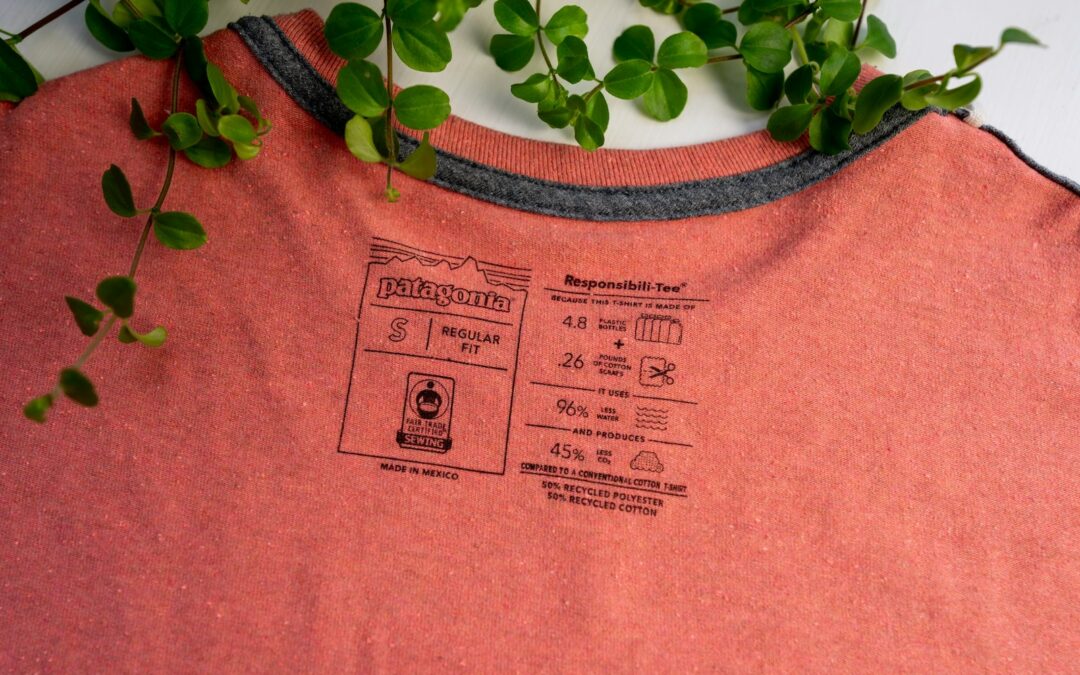
Embracing Sustainability in Your Daily Routine
Adopting a zero-waste vegan lifestyle merges compassion for animals with a commitment to reducing one’s environmental impact. It’s a holistic approach that not only avoids animal products but also seeks to minimize waste in all forms. This lifestyle choice reflects a growing consciousness about the health of the planet and its inhabitants, recognizing that small, daily actions can contribute to significant environmental change.
For those looking to live more harmoniously with the earth, zero-waste vegan living offers practical pathways for reducing one’s carbon footprint. It goes beyond diet, encompassing how individuals shop, consume, and dispose of goods. By focusing on sustainability and ethical consumption, individuals can make profound differences—lessening landfill contributions, conserving natural resources, and protecting wildlife.
The journey of transforming to an eco-conscious way of life can be filled with learning and challenges, but also with great rewards. It involves rethinking one’s habits and making mindful choices—from minimizing food waste to selecting products with less packaging. Embracing a zero-waste vegan lifestyle is a positive step for both the planet and personal well-being, fostering a healthier environment and a clear conscience.
Embracing Zero-Waste Vegan Fundamentals
Transitioning to a zero-waste vegan lifestyle encompasses adopting daily habits that respect the planet while maintaining a commitment to cruelty-free living.
What Is Zero-Waste Vegan Living?
Zero-waste vegan living combines two powerful environmental philosophies. It avoids animal products and minimizes waste to reduce one’s environmental footprint. This lifestyle emphasizes sustainability and eco-conscious choices that go beyond diet, affecting all areas of consumption and waste production.
The Environmental Benefits
Adopting a zero-waste vegan lifestyle can have profound impacts on the environment. By eliminating animal products, one significantly lowers their carbon footprint, as livestock farming is a major contributor to climate change. In parallel, a zero waste lifestyle helps decrease landfill waste, conserves natural resources, and reduces pollution.
Understanding the 5 Rs: Refuse, Reduce, Reuse, Recycle, Rot
- Refuse: Avoid single-use items and unnecessary products, especially those that can’t be reused or recycled.
- Reduce: Simplify needs and consumption to decrease waste output.
- Reuse: Opt for items that can be used multiple times, and repurpose where possible.
- Recycle: Responsibly recycle materials that cannot be refused, reduced, or reused.
- Rot: Compost organic waste to return nutrients to the earth and reduce methane emission from landfills.
By integrating these practices, individuals contribute to a healthier planet while living in alignment with vegan and zero-waste values.
Practical Tips for Zero-Waste Vegan Living
Embracing a zero-waste vegan lifestyle involves small, practical steps that lead to significant environmental benefits. This section explores actionable strategies for making grocery shopping, cooking, and everyday living more sustainable and less wasteful.
Grocery Shopping with Minimal Impact
When grocery shopping, one should opt for bulk bins to reduce packaging waste. Carrying reusable bags and jars helps avoid single-use plastics. One can also seek out bulk food stores that cater to a zero-waste ethic, offering plant-based foods without unnecessary packaging.
- Checklist for Shopping:
- Use reusable shopping bags
- Purchase from bulk bins using own containers
- Choose products with minimal or recyclable packaging
Purchasing plant-based foods in bulk not only reduces waste but often proves to be more cost-effective in the long run. Additionally, opting for local produce and seasonal items minimizes the carbon footprint associated with food transportation.
Reducing Food Waste in the Kitchen
A cornerstone of a zero-waste kitchen is minimizing food waste. This starts with planning meals around available ingredients to ensure that all food scraps are used creatively in vegan recipes. For inedible parts, such as peelings and cores, composting is an excellent way to repurpose waste and return nutrients to the soil.
- Tips for Minimizing Waste:
- Plan meals to use up ingredients
- Get creative with leftovers and food scraps
- Start a compost bin for organic waste
By managing portions and storing leftovers efficiently, one can further reduce waste. Always remember to inspect the fridge and pantry before shopping to avoid buying duplicates of what you already have.
Eco-Friendly Cleaning and Personal Care
Sustainable living extends beyond diet. In cleaning and personal care, eco-friendly alternatives to conventional products help lessen waste. One can use simple ingredients like vinegar and baking soda for cleaning, effectively reducing the need for multiple plastic bottles of cleaner. Moreover, investing in items like a reusable water bottle and other reusable personal care products dramatically cut down on single-use plastics.
- Sustainable Swap Examples:
- Cleaning with natural ingredients
- Using bar soap instead of liquid soap in plastic containers
- Biodegradable personal care products
Individuals can make deliberate choices, such as purchasing toilet paper made from recycled materials, or making their own personal care products, actions that not only champion sustainable living but also support a zero-waste philosophy.
Overcoming Challenges of Zero-Waste Veganism
Transitioning to a zero-waste vegan lifestyle can be rewarding, promoting environmental sustainability and animal welfare. This section explores practical strategies for overcoming common hurdles along the journey.
Finding Sustainable Alternatives to Common Products
Switching to a zero-waste lifestyle means finding alternatives for items that are typically plastic or single-use. Individuals can opt for products like bamboo toothbrushes, reusable shopping bags, and silicone food storage bags. For personal care, one might consider bar shampoos and metal razors. In the kitchen, compostable dish brushes and beeswax wraps can replace their plastic counterparts. Researching brands committed to mindful consumption and sustainable practices is crucial.
Dealing with Social Settings and Dining Out
Navigating social situations while adhering to zero waste living and a vegan diet poses its own set of challenges. When dining out, it helps to select eateries that share a commitment to animal welfare and conscious consumption. Vegans should also communicate their preferences to hosts or restaurants ahead of time to ensure there are suitable options available. Carrying a set of reusable utensils and containers for potential leftovers can minimize waste.
Addressing Nutritional Concerns
Nutrition is a significant concern for anyone considering a plant-based diet. It is important to ensure a well-rounded diet that meets all the nutritional requirements. Vegans should focus on a variety of foods to provide essential vitamins and minerals, such as incorporating a mix of legumes, whole grains, nuts, seeds, fruits, and vegetables. Consulting a nutritionist or utilizing credible resources can address any dietary gaps. As part of a zero waste lifestyle, purchasing these items in bulk using reusable containers and prioritizing compostable or recyclable packaging are steps toward a sustainable future.
Advancing Beyond the Basics
As individuals committed to a zero-waste vegan lifestyle deepen their journey, they often seek ways to magnify their impact. Mastering personal habits is only the beginning; the next steps involve fostering a like-minded community, advocating for systemic alterations, and promoting a sustainable lifestyle broadly.
Creating Your Zero-Waste Vegan Community
The power of a community can’t be understated in the journey towards a more sustainable future. By connecting with others, individuals can share tips, like how to choose reusable alternatives to single-use plastics, and support each other in navigating the challenges of minimalism and ethical eating. Local meet-ups, zero-waste workshops, and social media groups are excellent starting points for building this community.
Contributing to Systemic Change
Zero-waste living isn’t just an individual pursuit; it involves urging companies and policymakers to adopt a loop system that minimizes waste. This can be achieved by supporting legislation that promotes upcycling and by choosing to spend with businesses that prioritize environmental stewardship. Consumers have the power to drive change by demonstrating a demand for sustainable practices.
Sustainable Lifestyle Advocacy
Educating others about the benefits of a zero-waste, plant-based lifestyle extends one’s influence beyond personal actions. Advocates can host talks at schools and community centers, write informative articles, or create online content that underscores the importance of reducing consumerism and championing vegan options. Through advocacy, they raise awareness and inspire others to adopt an eco-conscious lifestyle.
The transition towards advanced sustainable and ethical living practices is dynamic and multifaceted, involving community building, systemic activism, and widespread education. Each step taken is a stride towards a healthier planet and a testament to the commitment to environmental and ethical responsibility.







